Guinea pigs are popular pets known for their cute appearance and gentle nature. However, like all animals, they are prone to various health issues that can affect their well-being. One common problem that guinea pig owners may encounter is eye discharge. While some forms of eye discharge are normal, excessive or unusual discharge can indicate underlying health problems. In this article, we will explore the causes, treatment, and prevention of eye discharge in guinea pigs to ensure the best possible care for these beloved pets.
Seemore: Can Guinea Pigs Eat Asparagus? – A Complete Guide
Contents
1. Conjunctivitis (Pink Eye)
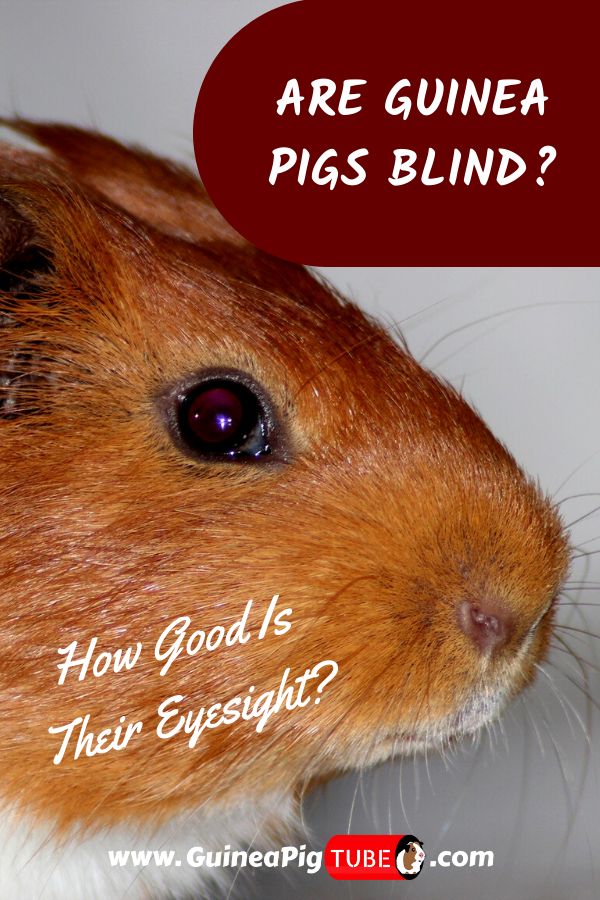
Causes and Symptoms
Conjunctivitis, commonly known as pink eye, is an inflammation of the conjunctiva, the clear membrane that covers the white part of the eye and lines the eyelid. In guinea pigs, conjunctivitis is often caused by bacterial or viral infections. These infections can be transmitted through direct contact with an infected animal or contaminated objects such as bedding or toys. Other factors that can contribute to the development of conjunctivitis include poor hygiene, overcrowding, and stress.
Symptoms of conjunctivitis in guinea pigs include red or pink eyes, swelling, squinting, and excessive tearing. The discharge may be clear, yellowish, or greenish in color and can range from watery to thick and purulent. In severe cases, the discharge may cause the eyelids to stick together, making it difficult for the guinea pig to open its eyes.
Treatment and Prevention
If you suspect that your guinea pig has conjunctivitis, it is important to seek veterinary care immediately. Your veterinarian will perform a physical examination and may take a sample of the discharge for testing to determine the underlying cause. Treatment for conjunctivitis typically involves antibiotics, anti-inflammatory medication, and eye drops or ointments to help soothe and clear the infection. In some cases, your veterinarian may also recommend cleaning the affected eye with a saline solution to remove any discharge or debris.
To prevent conjunctivitis in guinea pigs, it is essential to maintain good hygiene and keep their living environment clean. Regularly cleaning and disinfecting their cage, toys, and bedding can help reduce the risk of bacterial or viral infections. Additionally, avoid overcrowding and provide each guinea pig with enough space to move around and exercise. If you have multiple guinea pigs, make sure to quarantine any new additions for at least two weeks before introducing them to the rest of the group.
2. Corneal Ulcers
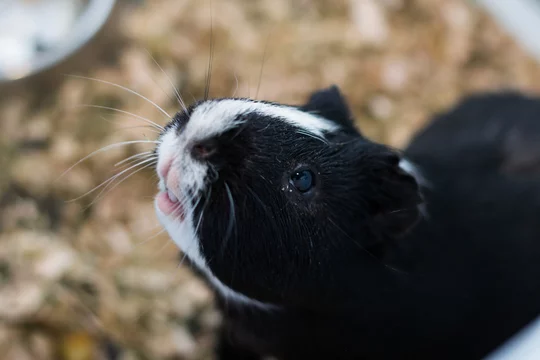
Causes and Symptoms
Corneal ulcers are open sores on the cornea, the transparent outer layer of the eye. They can be caused by trauma, injury, or infection. Guinea pigs with corneal ulcers may experience pain, redness, swelling, and a purulent discharge that may be clear or yellowish. Other signs of corneal ulcers include excessive blinking, squinting, and rubbing or pawing at the affected eye.
Corneal ulcers can occur due to various reasons, such as scratches from sharp objects, foreign bodies, or underlying health conditions like vitamin A deficiency or dental problems. They are more common in guinea pigs with protruding eyes, such as the Abyssinian breed, as their eyes are more exposed and vulnerable to injuries.
Treatment and Prevention
If you suspect that your guinea pig has a corneal ulcer, seek veterinary care immediately. Your veterinarian will perform a thorough eye examination and may use special dyes to identify the location and severity of the ulcer. Depending on the cause and severity of the ulcer, treatment may include antibiotics, anti-inflammatory medication, and pain relief. In severe cases, surgery may be necessary to remove the damaged tissue and promote healing.
To prevent corneal ulcers in guinea pigs, it is crucial to provide a safe and clean living environment. Avoid using sharp or abrasive objects in their cage, and regularly check for any foreign bodies that may have entered their eyes. If your guinea pig has protruding eyes, be extra cautious when handling them and make sure to trim their nails regularly to avoid accidental scratches.
3. Cataracts
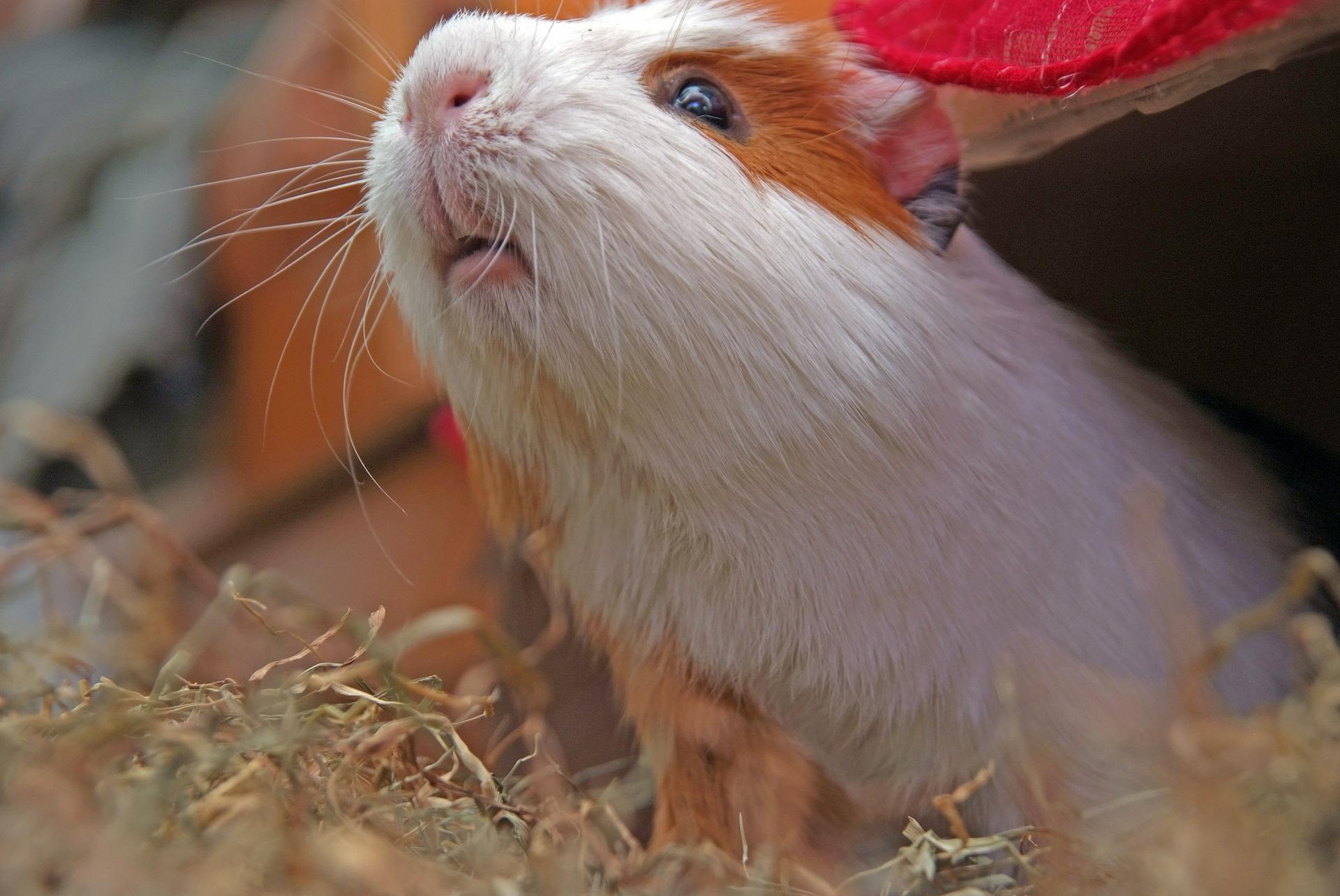
Causes and Symptoms
Cataracts are a clouding of the lens of the eye, which can lead to vision impairment. They are common in older guinea pigs and may be caused by various factors, including genetics, nutritional deficiencies, or underlying health conditions. Guinea pigs with cataracts may experience a milky or bluish discharge from their eyes, along with other symptoms such as cloudy or hazy eyes, difficulty seeing, and bumping into objects.
Treatment and Prevention
Unfortunately, there is no known treatment for cataracts in guinea pigs. However, if the cataracts are not causing any discomfort or affecting the guinea pig’s quality of life, they can live comfortably with this condition. In some cases, surgery may be an option to remove the cataracts and improve the guinea pig’s vision. However, this procedure is risky and expensive, and not all guinea pigs are suitable candidates for it.
To prevent cataracts in guinea pigs, it is essential to provide a well-balanced diet that meets their nutritional needs. Vitamin C is crucial for maintaining healthy eyes in guinea pigs, so make sure to include plenty of fresh fruits and vegetables in their diet. Regular veterinary check-ups can also help detect any underlying health conditions that may contribute to the development of cataracts.
4. Allergies
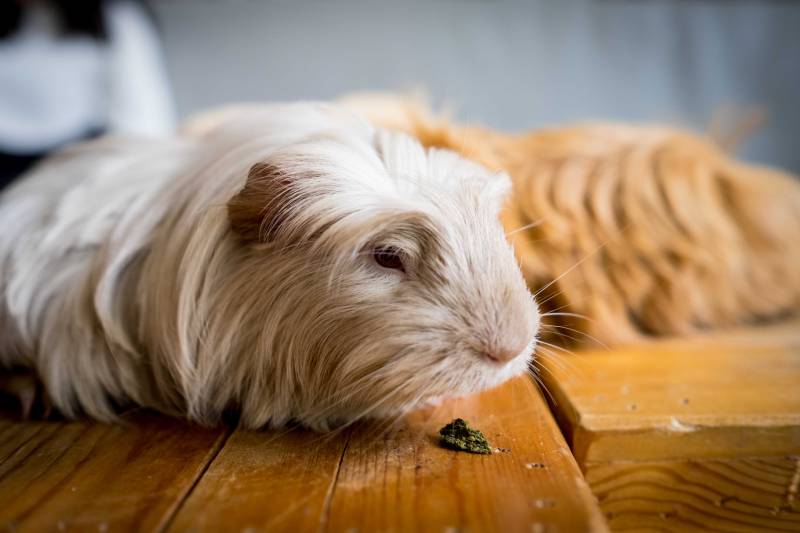
Causes and Symptoms
Just like humans, guinea pigs can also develop allergies that can affect their eyes. Allergies in guinea pigs are often caused by environmental factors such as dust, pollen, or certain types of bedding. Symptoms of allergies may include red and itchy eyes, excessive tearing, and a clear or watery discharge.
Treatment and Prevention
If you suspect that your guinea pig has allergies, it is essential to identify and eliminate the allergen from their environment. This may involve changing their bedding, avoiding dusty areas, or switching to a different type of hay. Your veterinarian may also prescribe antihistamines or other medication to help alleviate the symptoms. Regular cleaning and maintaining good hygiene can also help prevent allergies in guinea pigs.
5. Dental Problems

Causes and Symptoms
Dental problems are common in guinea pigs and can lead to various health issues, including eye discharge. Overgrown teeth, malocclusion (misalignment of teeth), and abscesses can all cause pain and discomfort, leading to excessive tearing and a purulent discharge from the affected eye. Other signs of dental problems in guinea pigs include difficulty eating, weight loss, and drooling.
Treatment and Prevention
If your guinea pig has dental problems, seek veterinary care immediately. Your veterinarian will perform a thorough examination and may recommend trimming or filing down the overgrown teeth, extracting any abscessed teeth, or prescribing antibiotics to treat infections. To prevent dental problems in guinea pigs, provide a diet high in fiber and roughage, such as hay, to help wear down their teeth naturally. Regularly check your guinea pig’s teeth for any signs of overgrowth or abnormalities, and seek veterinary care if necessary.
6. Foreign Bodies
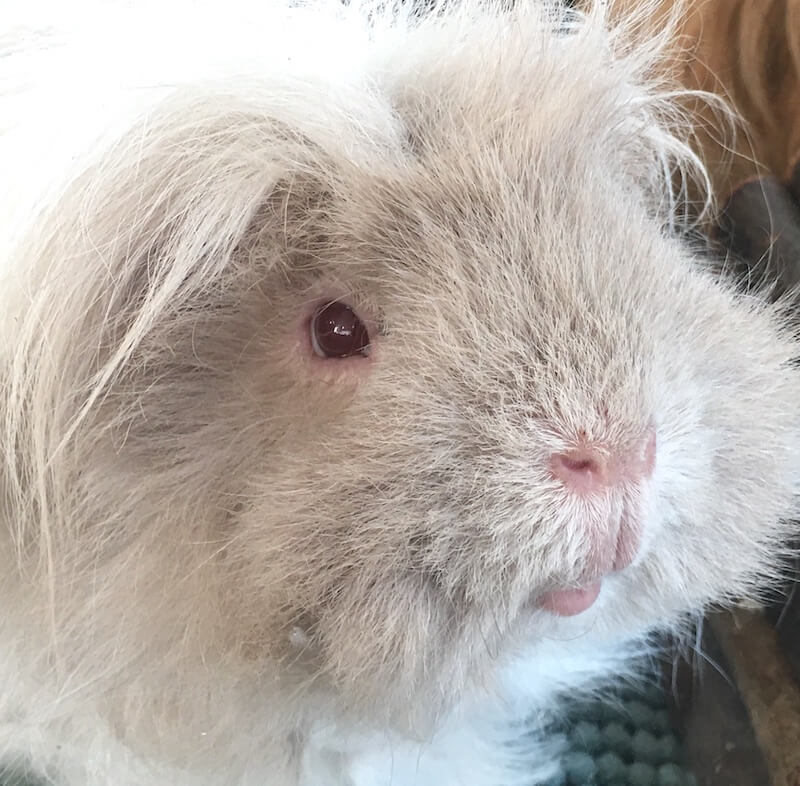
Causes and Symptoms
Guinea pigs are curious animals and love to explore their surroundings. However, this can sometimes lead to accidents, such as getting foreign bodies stuck in their eyes. Small particles of hay, bedding, or dust can irritate the eye and cause excessive tearing and a clear or watery discharge. In some cases, foreign bodies can also cause corneal ulcers or infections if left untreated.
Treatment and Prevention
If you suspect that your guinea pig has a foreign body in its eye, do not attempt to remove it yourself. Seek veterinary care immediately, as attempting to remove the object without proper equipment and knowledge can cause further damage to the eye. To prevent foreign bodies from entering your guinea pig’s eyes, regularly clean their living environment and avoid using dusty bedding materials.
Conclusion
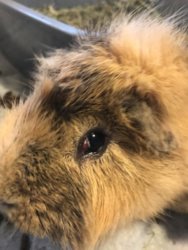
Eye discharge in guinea pigs can be caused by various factors, including infections, injuries, allergies, and underlying health conditions. It is essential to monitor your guinea pig’s eyes regularly and seek veterinary care if you notice any unusual or excessive discharge. Maintaining good hygiene, providing a well-balanced diet, and keeping their living environment clean can help prevent eye discharge and other health issues in guinea pigs. With proper care and attention, you can ensure that your furry friend stays happy and healthy for years to come.
